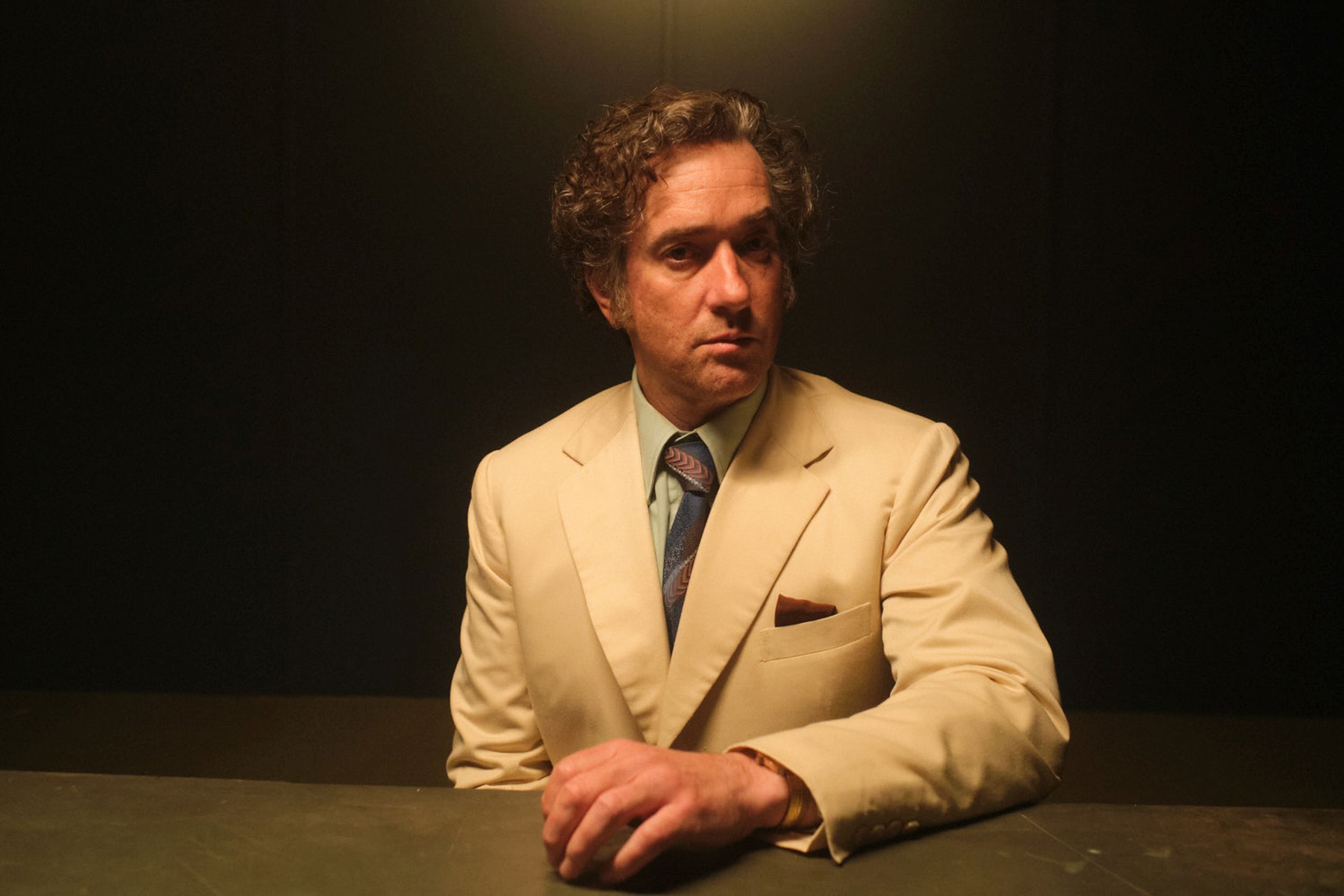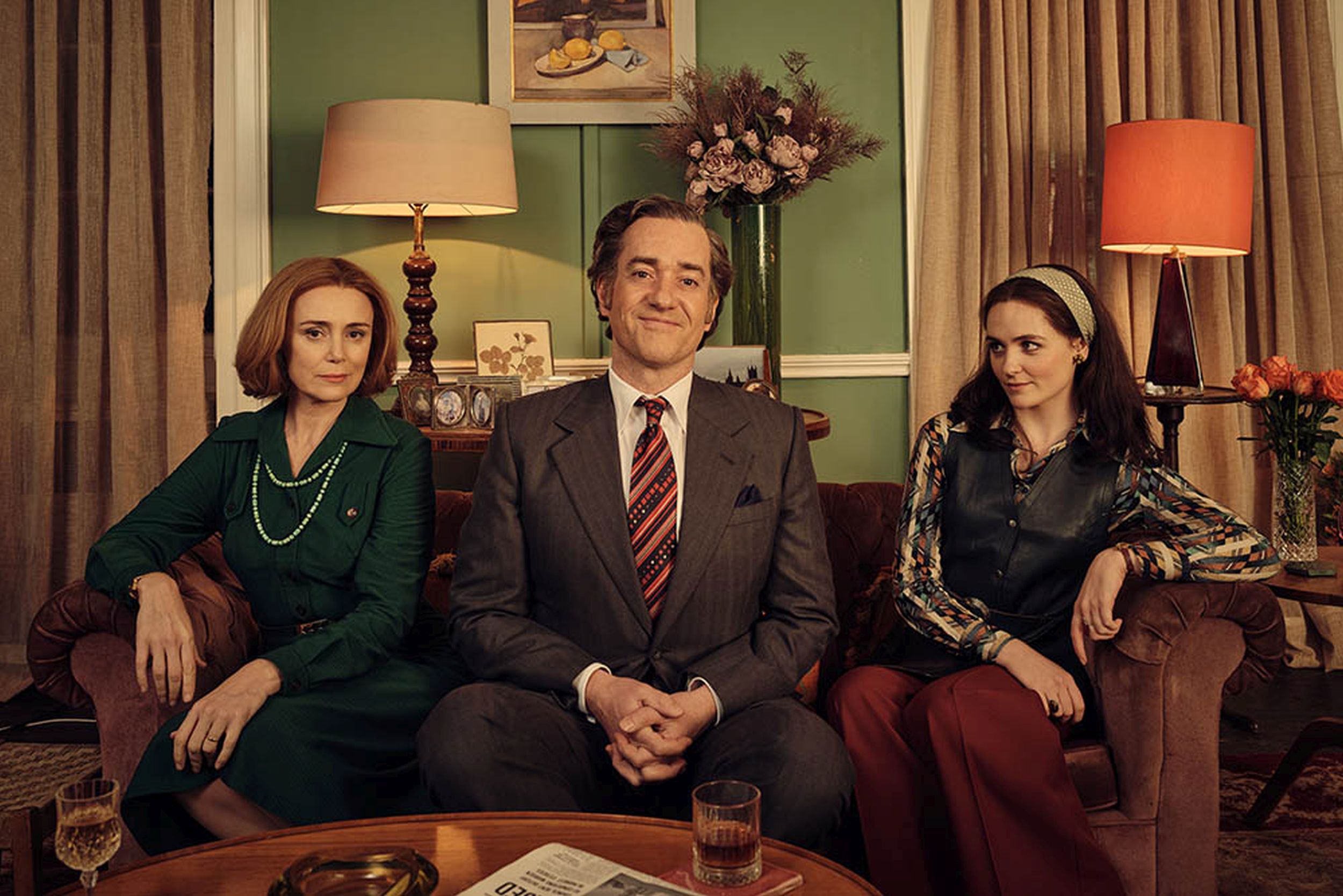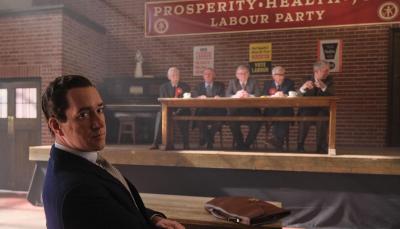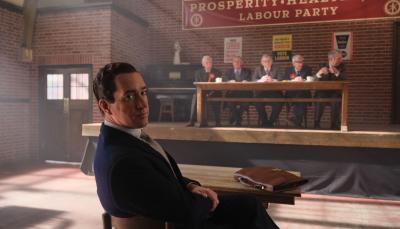'Stonehouse' Revels In The Wacko Narcissism of John Stonehouse
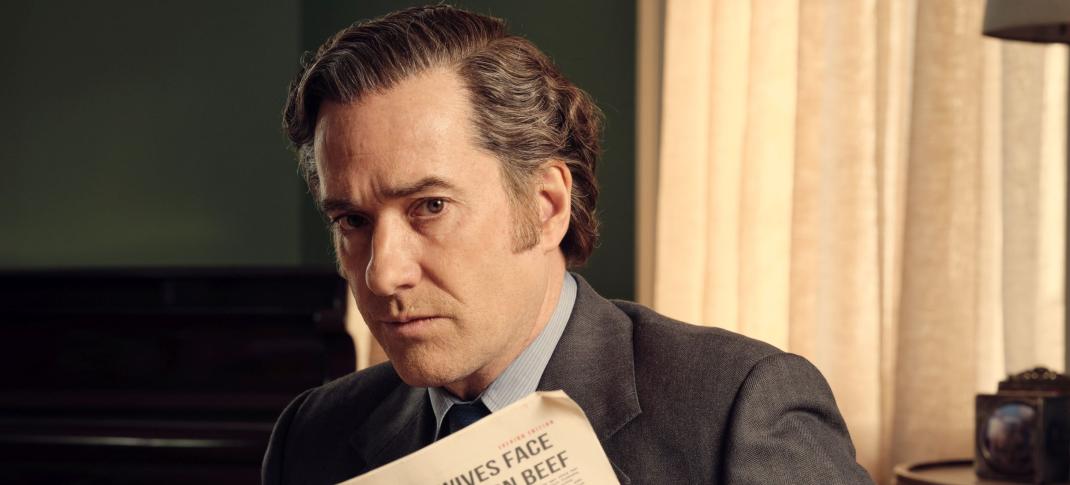
Matthew Macfadyen as John Stonehouse in 'Stonehouse'
BritBox/ITV
The British House of Commons observes so many weird, archaic traditions and rituals it’s no surprise that its institutions have been internalized by many Members of Parliament to cause some properly bizarre behavior. Enter John Stonehouse, Postmaster General in Harold Wilson’s late-60s cabinet, and a thoroughly odd man. In 1974, thanks to “creative accounting” (read: fraud) and alleged links to Czechoslovakian military intelligence, he decided to upend his whole life, fake his death in Florida, and live out the rest of his days under an assumed alias in Australia with his mistress (who was also his secretary).
Stonehouse, the new miniseries about Stonehouse’s crimes, gets a lot of joy from painting Stonehouse as a thoroughly odd man. He’s brought to life by Matthew Macfadyen, who could do this type of performance in his sleep – he’s faultless as a bassy buffoon with a treasure trove of ticks and insecurities. Stonehouse probably wouldn’t exist were it not for Russell T Davies’ A Very English Scandal, which also told a story of sex and scandal unfolding behind parliamentary closed doors (Stonehouse’s screenwriter John Preston penned the book Davies based his series on).
A Very English Scandal was a monumental success, proving an appetite for celebrities as memorable figures from recent-ish British history; its direct successor, A Very British Scandal, was about Margaret Campbell’s public divorce. Stonehouse also isn’t Macfadyen’s first “Brit Scandal” three-episode miniseries; he starred as Charles Ingram in Quiz, the dramatization of 2001’s Who Wants To Be A Millionaire fraud. These shows share ripped-from-the-headlines notoriety and the same poppy, playful riff on class dynamics, filled with neurotic failures and racy in a digestible primetime fashion. Every single one features scenes of sheepish but determined characters pushing through crowds of British press shouting questions and flashing bulbs. The point is by the time we jump into John Stonehouse’s story, the whole affair feels a little flat.
Less polished than its predecessors, Stonehouse’s filmmaking craft noticeably flags. The music feels like a royalty-free tone-setter, the blocking in scenes is often blunt and distracting, and none of the production design pops out, feeling more like a theatre backdrop. Maybe the majority of the budget went into John Stonehouse’s varied suits and Macfadyen’s thoroughly ruffled hair, and the creative team hoped that these, combined with a booming lead performance, would be enough to keep audiences hooked.
But even if you don’t know the history of Stonehouse’s criminal escapades, the nearly three-hour runtime feels a stretch for a story with few twists and turns, and Preston’s script doesn’t mine too deeply into the political context surrounding Stonehouse to justify the show’s existence.
Stonehouse is ostensibly a show about narcissism, entitlement, and delusion, but really it’s exclusively about John Stonehouse. Other characters fill the screen – his wife Barbara (Keeley Hawes, Macfadyen’s real-life wife) and secretary/mistress Sheila Buckley (Emer Heatley), but even when all three are forced to share scenes, the drama lacks the acerbic bite we’ve seen infidelity and indiscretions take in the Scandal series. Hawes and Heatley hand in commendable performances, but the bog-standard clipped, awkward delivery feels increasingly grating, divulging nothing profound about their character. Everything they do reveal relates to John, further narrowing the scope of the miniseries.
What is surprising, especially to those unfamiliar with the real story, is how quickly Stonehouse’s fake death is resolved – perhaps because we’re too used to this kind of story being expansively strung out in fiction, and in real life, it’s much harder to convincingly fake your own death. But Stonehouse doesn’t properly deliver on the hopes of a surprising and compelling latter half, skipping over the most interesting developments. This is partially out of necessity; Stonehouse’s alleged Czech espionage was never proven, so it’s not like the writer could show consequences for his spy antics in his lifetime.
But other choices, like skipping over the entirety of his trial and only surmising it in a monologue at his sentencing (c’mon, not even a montage?!), point to a lack of dramatic focus – or simply a misjudgment of what audiences want to see from the story.
This new-ish, glossy brand of British true crime may go down smoothly, but Stonehouse proves we’ve started hitting diminishing returns in this structure of transposing historic scandals into television. If attacking the hubris and ego of Britain’s upper echelons is beginning to lose its glimmer, what these different miniseries should be offering is a unique commentary on the political period they’re set in. All Stonehouse offers is mealy-mouthed, half-baked theorizing in the form of Harold Wilson (Kevin McNally) affirming Stonehouse’s insincere lambasting of the crooked parliamentary system as a cover for his own misdeeds. It’s like screenwriter Preston hasn’t given the topic much thought and hopes the audience will do the same.
All three episodes of Stonehouse are streaming on BritBox.

